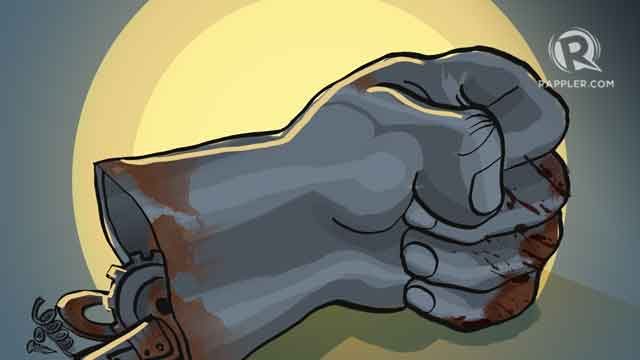SUMMARY
This is AI generated summarization, which may have errors. For context, always refer to the full article.

It is not difficult to fall for the belief that harshness prevails. It cows the weak into submission, frightens people into compliance and whips them into line. It is the more difficult thing to see how tenderness conquers harshness, but that is the story of Christmas.
The Census ordered by Caesar Augustus was harsh, but it was part of imperial panoply. Rulers want to know how many people grovel before them, like the miser enjoys counting each penny he keeps. It sent people great distances for no other purpose than to make themselves more available to tax collectors and to flatter the emperor who obviously took delight in the number and variety of peoples that recognized him not only as “imperator” but as “Divus Caesar”…divine, a god, in fact.
It was likewise a harsh circumstance that in the pangs of labor, Mary could get no place to rest, because Joseph was told that about every inch available to the weary traveler in Bethlehem that night had been taken. And of course, it was harsh that they had to make do with an animal shed, with a manger for a crib and animals as the witnesses of the unfathomable magic of love: God so taking the human condition upon himself as to identify himself completely with us in a child!
But the choirs of angels, the tribute of the shepherds – the true “humiles Domini”…the humble of the Lord, the ‘anawim Yahweh,’ the blessed poor of God (for whom God was avenger because there was no on else to avenge them), and the wisdom of the Magi that brought them to their knees and brought forth as their gifts the treasures of the Orient, made it clear: Harshness was not going to define the narrative that commenced in Heaven, where Wisdom reigns Eternal. Tenderness and mercy were!
And thirty three years later, it was harshness once more that made them drag now the man before the religious authorities of the time, the guardians of peace, the guarantors of discipline and decency. He did not meet their standards. He was a threat to national order. He consorted with the denizens of the underworld, and was therefore also suspect.

It was utter harshness to scourge him for nothing more than Pilate’s delectation and for the people who had hung on his every word to want him now hanged from the cross, they who longed for the bread that he multiplied for their satisfaction, rejoiced because he had raised their dead to life, healed their sick and cast out he demons from their afflicted, to choose Barrabas over him and to cry for his blood.
Tenderness
And the height of human harshness was the height of the cross on which they raised him, bloodied, bruised and beaten (or so they thought). But he made the wood of his execution the throne of a king, for only a king can say with such grace and certainty: Today, you shall be with me in Paradise. Again, harshness was dealt a stunning blow, a shameful defeat, for instead of bitterness, or chastisement, the world heard the words of tenderness that made clear that his kingdom is not of this world: “Father, forgive them…”.
Harshness has never won, and the harsh are not enshrined in memory.
The cruel Emperors of Rome may have commissioned busts and gigantic likenesses by which to flatter themselves, but even today, when she see these, we remember their cruelty.
But the child born at Bethlehem who matured into the man who died on the cross left us the lesson we so badly need to learn in our times: Harshness never conquers. Tenderness does – not the tenderness that curries favor and courts votes, but the tenderness of a child born for only one purpose: To save his own, and who dies, amidst the hisses and the curses, with the words of tender conquest: Forgive them! I give you all my spirit!
A Merry Christmas to all. – Rappler.com
The author is vice president of the Cagayan State University and Dean of the Graduate School of Law, San Beda College.
Add a comment
How does this make you feel?
There are no comments yet. Add your comment to start the conversation.